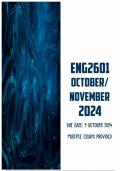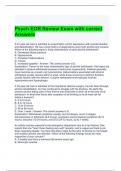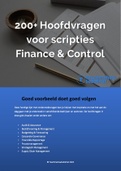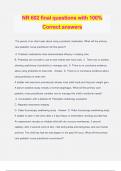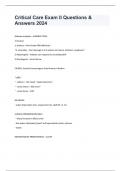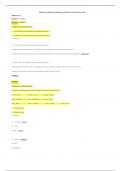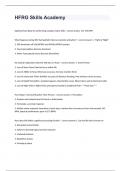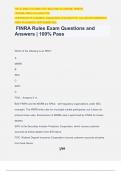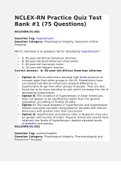Exam (elaborations)
ENG2601 October/November 2024 | Due 9 October 2024
- Institution
- University Of South Africa (Unisa)
ENG2601 October/November 2024 | Due 9 October 2024. Multiple Essays Provided. Read Text A and answer the questions that follows. South Africa’s massive reading problem Luke Fraser 16 May 2023 Grade 4 learners in South Africa have the worst reading ability in the world, with 81% incapable of read...
[Show more]
